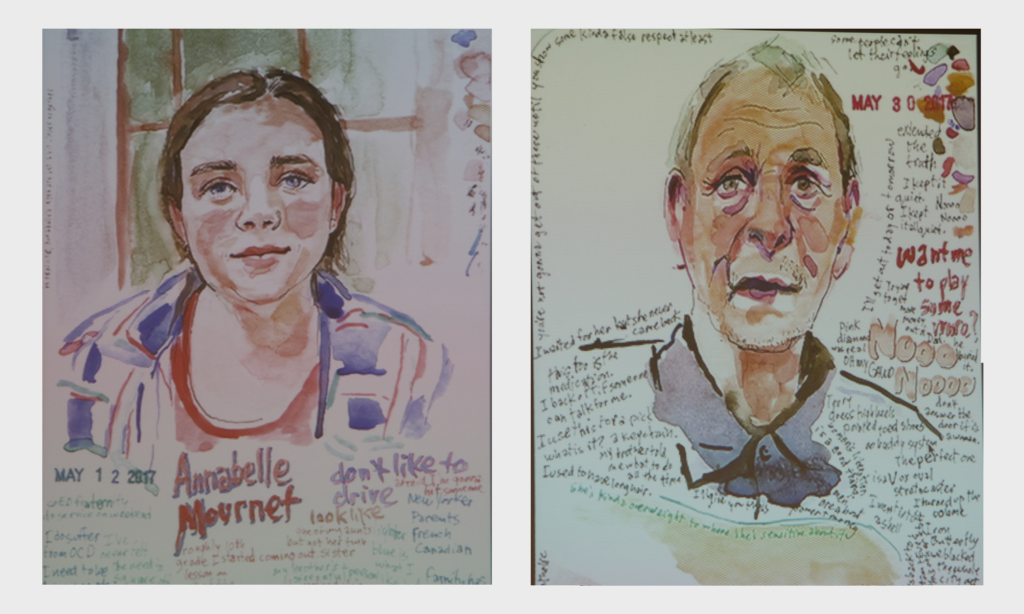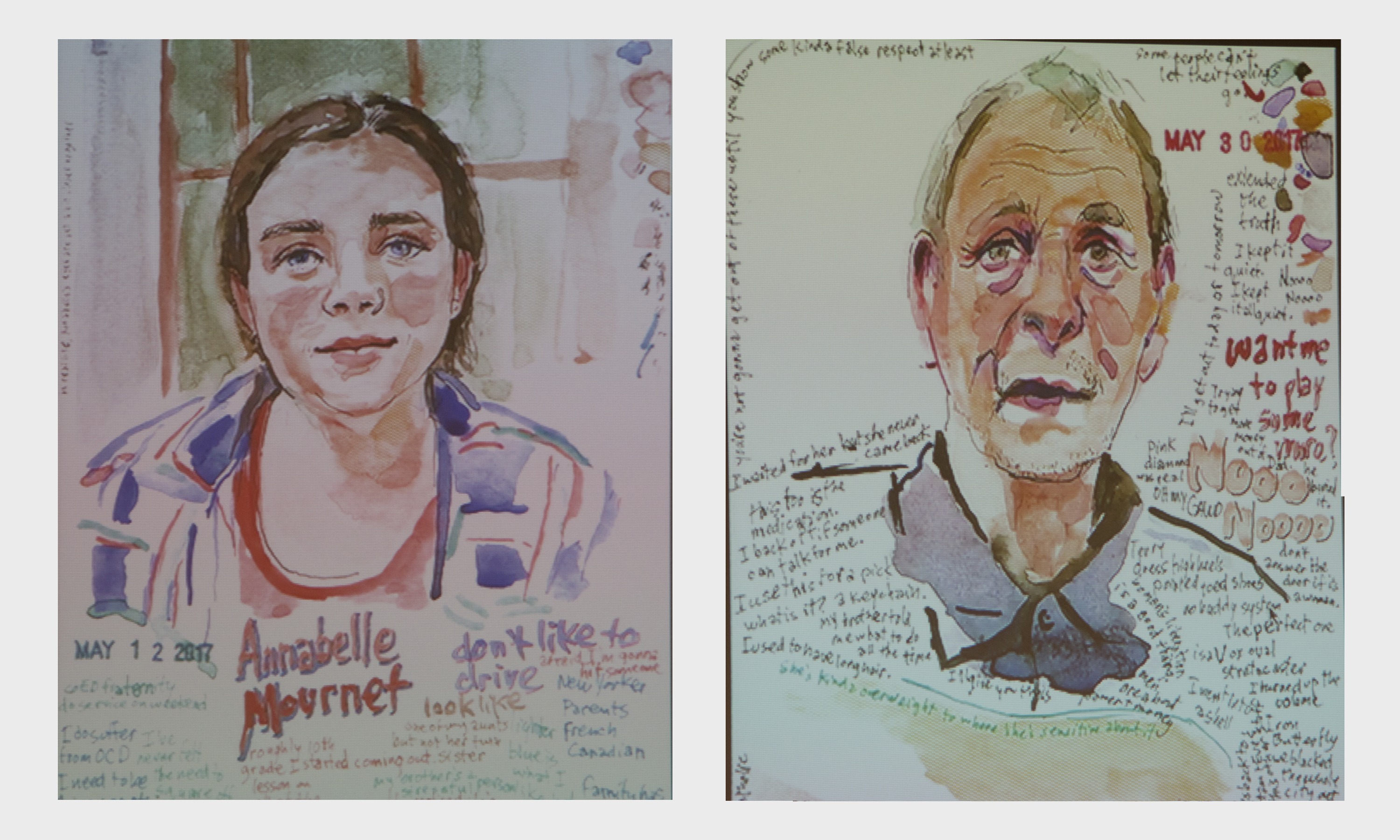UR artist-in residence Charmaine Wheatley presented an artistic project to students this past Tuesday that aims to help HIV-positive and mentally ill patients.
The project, “Humanizing is Destigmatizing,” combines art and public health awareness and was made in partnership with UR Medical Center.
The event was organized by the Society of Undergraduate Public Health and was a part of the group’s Public Health Week initiative.
“Today’s event is dedicated to helping students understand the intersectionality between mental health and physical health, which is something that public health fields usually overlook,” said sophomore Cecily Zecca-Naples,
In an attempt to put a face to those living with HIV or mental illness, Wheatley converses with various mental illness and HIV patients and then translates their image, thoughts, fears, and lives into small painted portraits.
According to Wheatley, the one-hour conversations with patients are not all about their diagnosis.
“I’m thinking about the whole person,” Wheatley said.
Wheatley started the projectr to learn more about these individuals’ lives.
“I’m really curious and I want to know people and I want to learn,” said Wheatley as she reflected on her conversations with patients. “Sometimes it does get to tears, but it usually ends up in a hug.”
As reproductions of her paintings circulated around the packed room of attendees in Bausch and Lomb Hall, Wheatley displayed some of her original portraits to students and discussed the stories behind them.
“When you are looking at these portraits, it’s not me telling their stories, I’m just reflecting,” she said.
Wheatley also gave students insights into how she thinks of her portraits.
“To me, they are living breathing objects for as long as I’m on this planet,” she said.
She also presented her portable set of paining tools that consists of a small watercolor set, small water tubes, and brushes.
“It’s a portable system so I wouldn’t be like, ‘I only can do art if I’m sitting in my studio,’” said Wheatley.
Many students there were touched by Wheatley’s presentation.
“A lot of times public health is medicalized, but this is a perfect example of how art and public health could come together to inform the public,” senior Nicole Kase said. “I think that her ability to capture a face is not only pretty, but also moving.”
Zecc-Naples highlighted how the presentation made diagnoses more human.
“It shows the human side, what HIV diagnosis actually means to someone, and that it’s not just something in a folder in the doctor’s office,” she said.
The portraits and their stories can be found on their website. There are plans to create a book with the portraits.


